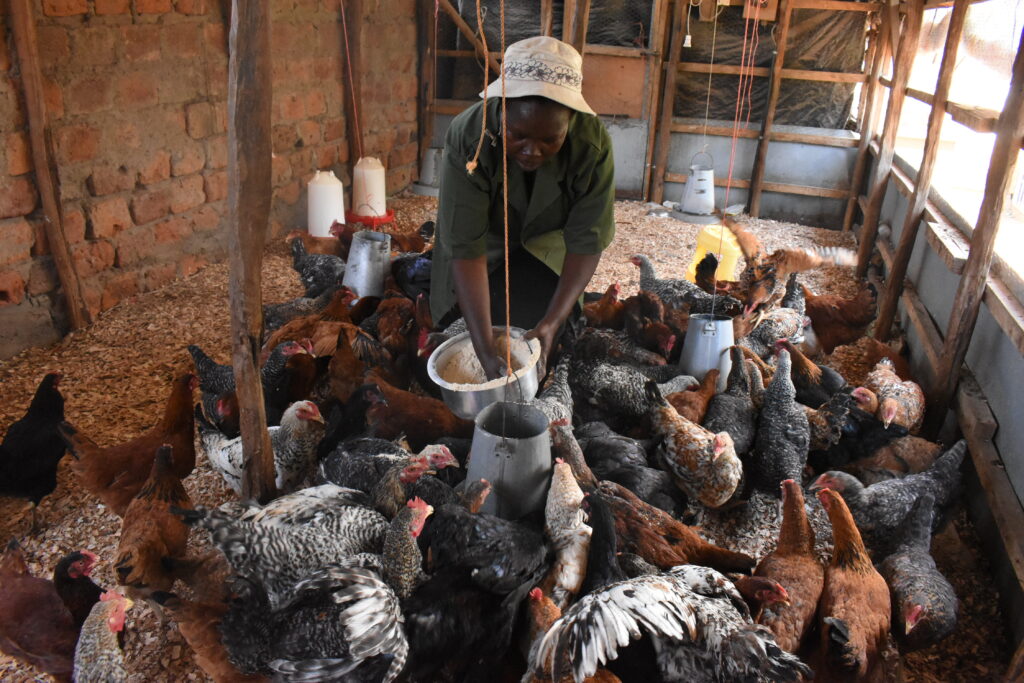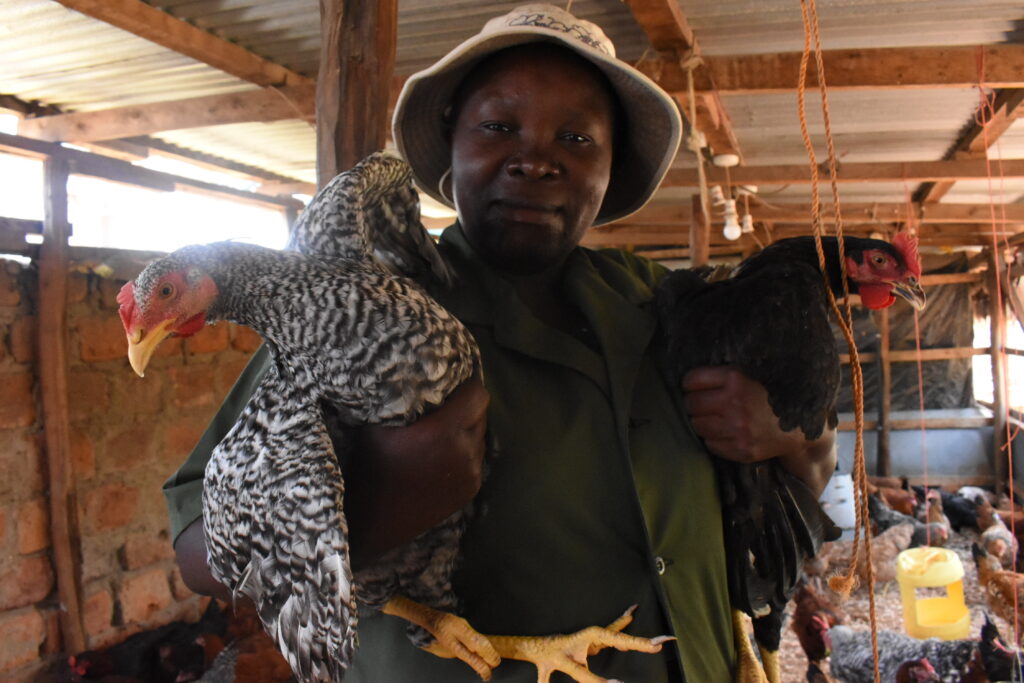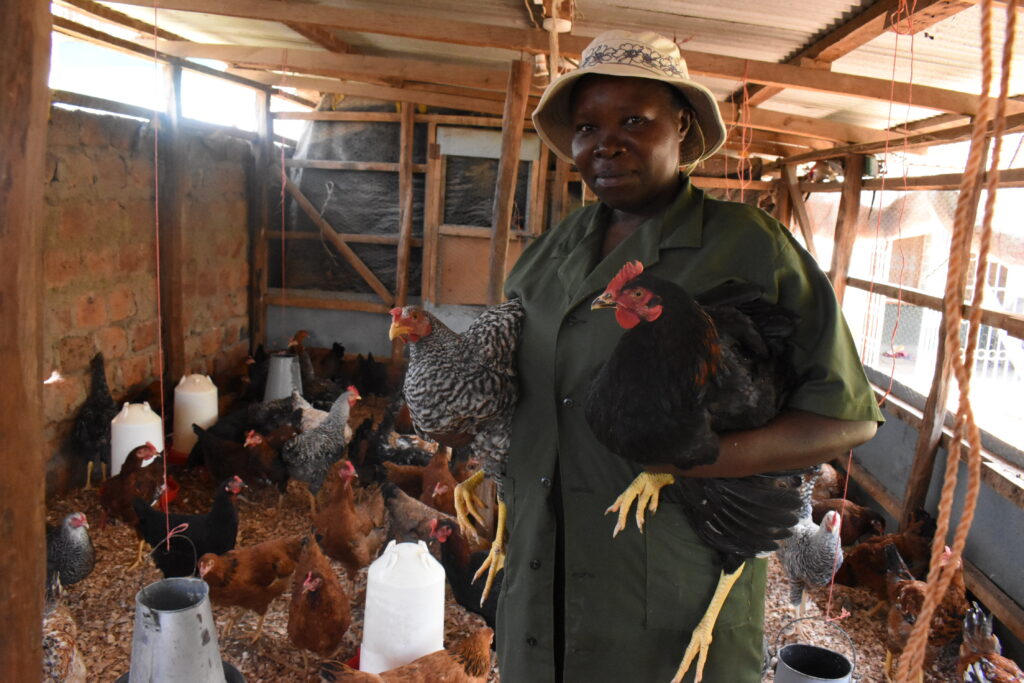In 2011, Anne Okello moved to Kisumu with her family after returning to the country from studies abroad.
She landed on this calm gated neighbourhood in Kenya-Ree Estate where neatly trimmed flowers sandwiched a carpeted parking area.
“It was a soothing ambience, and full of life,” she says. But this was not so satisfying to her.
Two years later, she got tired of the beauty, and tried to satisfy her poultry keeping passion.
There were increased media reports of continued negative impacts of climate change on food production across the globe, and Ms Okello felt it as her budget for food continued to shoot up despite the number of family members remaining constant.
She had to act, and she went for her passion; poultry farming, even though she was in dilemma on whether this was the best site for her venture.
“I though urban farming? This is a well-organized estate, and when I thought of keeping poultry, I was worried at how the neighbours would react,” she says.

Approval of the venture
A few consultations followed, through the estate management, and the neighbourhood approved of her venture with conditions that it would not compromise the hygiene of the area, as well as minimize noise pollution common with poultry.
She also had to operate in a way that would minimize the number of people visiting the area as this would pose security threat to the neighbourhood.
An assessment by the area Public Health officers approved of the project, and in 2013, Ms Okello did away with the beautiful flowers and the cemented compound to set up a poultry house.
“To tackle the hygiene fears, I have to clean the poultry house every three weeks and the waste is taken by farmers who plant nappier grass in the outskirt,” says Ms Okello.
She adds: “For the noise, I had to abandon the idea of keeping layers, which are always noisy, and instead went for broilers.”
And for the security fears, she resorted to using her social media platforms to market her products, and does home deliveries so as to avoid people visiting her place.
Her concept was clear. She wanted to promote urban farming which would ease pressure on demand for food whose supply was dwindling due to impacts of climate change, hence hiking prices.

But how did it all begin?
Ms Okello developed interest in farming when undertaking her Bachelor of Range Management degree studies at the University of Nairobi.
“I did my internship at the Museum for four years, and during this period, we did a number of community empowerment projects, where I realized how farming is key in wealth creation,” she says.
But after the first degree, she got a scholarship to pursue a Masters Degree in Public Administration in the United States, and returned to Kenya in 2011.
Back home, she landed a job with Osienala, a local Non-Governmental Organization which worked around Lake Victoria to promote Agriculture and Conservation.
“This meant I was back to the community to promote economic empowerment through farming, and environmental conservation,” she says.
This, she said, exposed her to the real impacts of climate change as she watched food production dwindle due to uncertain weather changes which required innovations to ensure people realized some harvest from their farms.
This prompted her to actualize her passion by setting up the poultry farm as a mean of satisfying her passion, and also providing alternative source of income as salary was not enough.
Her new compound
“While my neighbours have neatly looking lawns and flowers, my space is occupied by poultry, but I do not regret,” she says.
Part of what was a flower garden now hosts kales which she uses to feed her chicken.
Today, apart from her farm which sells 200 chicken after every six weeks, Ms Okello has also formed a network of poultry farmers, where she can get supplies should she get overwhelming orders.
“I have introduced about 15 people into poultry farming, some of them within this estate. So I help them with marketing the mature chicken, and I earn 10 per cent of the sales, and also sourcing for day-old chicks,” she says.
Her day is a packed one. Every morning she wakes up, she cleans the poultry feeders and drinkers as she does a health check and roll call for the chicken.
This is then followed by feeding and watering. The same is repeating in the evening.

Her secrets
When she begun the trade, she could lose up to 20 per cent of her stock to disease attacks. But today, she sometimes records zero per cent mortality of her chicks.
Ms Okello attribute this to hygiene which she says is the major undoing for many poultry farmers.
“Biosecurity is the secret. Clean the poultry house and the feeders regularly. Disinfect the poultry house regularly, and vaccinate them as provided in the manuals,” she said.
According to Ms Okello, she ensures her new stock is vaccinated against Newcastle at seven days old, with gumboro vaccine following seven days later. Another Newcastle vaccine is administered 14 days later.
The chicks are regularly given antibiotics to keep them safe from bacteria, vitamins to promote growth, and glucose to make them strong.
Today, her neighbours are her main clients, always making orders and she delivers. She also supplies some hotels in Kisumu, Homa Bay and Siaya.
She has since acquired a six-acre piece of land in Homa Bay where she plans to expand the venture in a big way.
